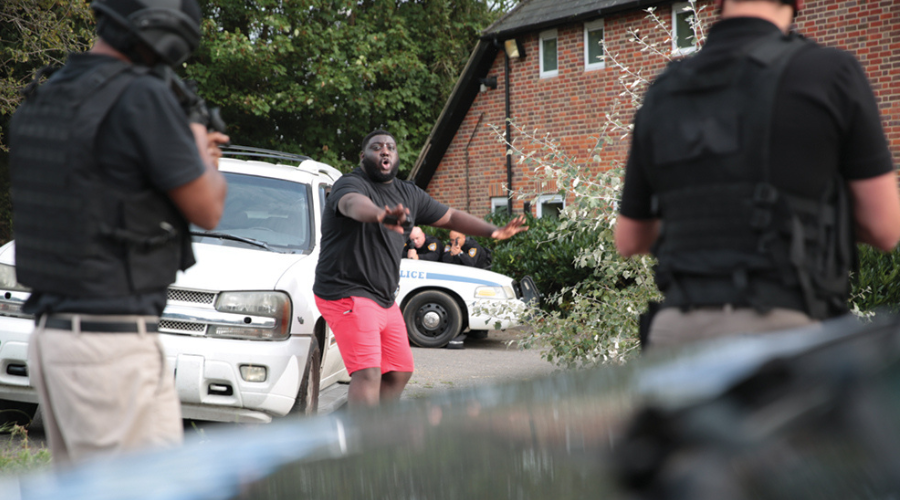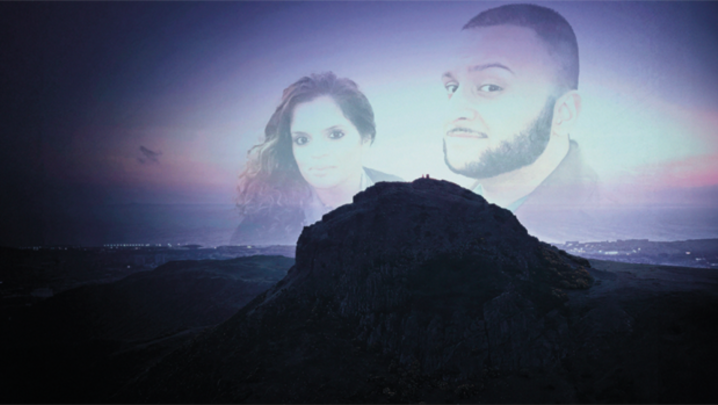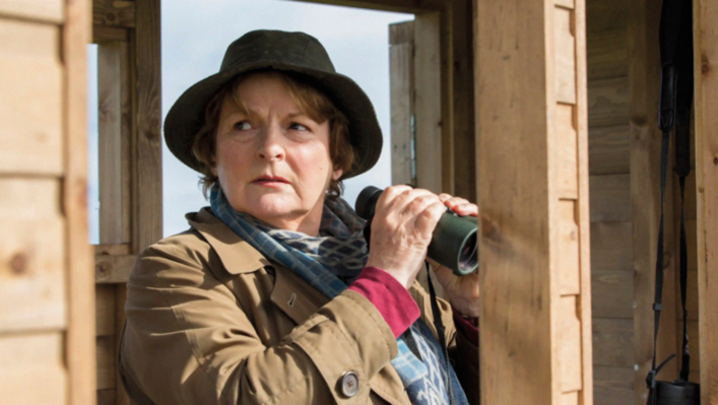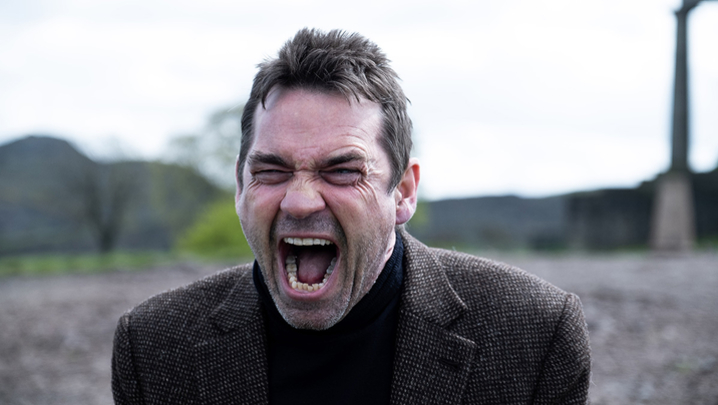Lucy Sanders runs Arrow Media’s in-house drama reconstruction department, which recreates events for true crime series such as Married to Evil and Secrets of the Hells Angels.
In her spare time, she makes films: last year, she produced the Second World War action movie Fortunes of War.
What does your job involve?
Alongside the drama director, I break down a documentary’s script to work out what needs dramatising and find suitable locations. The two of us also watch audition tapes together to decide on the actors we’re going to use in the reconstructions.
We work closely with the documentary team to match their aspirations with our budgets. I also oversee the drama production team, schedules, logistics, health and safety, and budget.
I can see you are on set now…
I’m in this very glamorous location in Slough – it was an old warehouse, and it is now one of our main shooting locations.
What are you filming at the moment?
A new crime series for a US network. We’re recreating suburban America in Slough.
How much drama reconstruction is there in an Arrow Media documentary?
It varies from show to show. Sometimes, there’s a lot of found footage that we can use, so we’re quite light on drama.
For the episode we’re working on today, the reconstruction will probably end up at about 20% of the total length. On others, there’s just a sprinkling of drama.
How does reconstruction differ from straight drama?
We’re not really filming dramatic scenes – what we’re doing is more abstract, trying to give a flavour or feel of what has happened behind closed doors. It adds depth to a documentary. We have to do it sensitively because real people are involved.
We also work very closely with the documentary and legal team to ensure that everything is factually accurate.
Did you always want to work in television?
I studied Spanish and Italian at university, and I didn’t think about TV at all. I was working as a translator and a nanny at the same time, but that wasn’t where I wanted my life to go. A one-day runner’s job came up at Sky, which sounded fun; they liked me and I didn’t leave for four years.
What was the first TV programme you worked on?
I was a production co-ordinator on Bin There, Dump That, an observational documentary series about Britain’s waste industry. You won’t have heard of it – it didn’t do very well. My first job as a production manager was on a true crime doc, Killer Doctors on Death Row.
Is production management a good route into television?
Absolutely – production is such a key part of making programmes. If you’re organised and love solving problems, it’s a great area to work in.
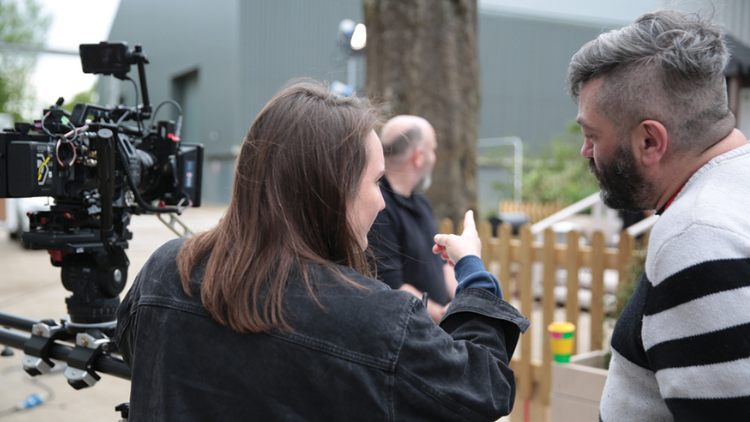
and first assistant director Al Bevan (credit: Arrow Media/Andrea Gambadoro)
Your role now is far more creative…
That’s something I’ve had to learn – it’s been a good challenge for me and I’m really enjoying it.
I also make films in my spare time – I made my first feature last year as a producer, a Second World War action movie, Fortunes of War, which is on Prime Video. I’m part of a crew who have worked together on and off for the past 10 years.
We’ve just finished making a musical short, Igor Unplugged, the story of Frankenstein’s downtrodden assistant who longs for a better life. We’re submitting it to FrightFest.
You have also worked as a second unit and assistant director at Arrow Media…
Once in a blue moon, when the director is not available, I have stepped in, but it’s really not my thing. I think everyone in TV ultimately wants to be a director – except me.
At Arrow Media, with which other people and departments do you work closely?
Arrow’s heads of production, Stephanie Mavropoulos and Carrie Pennifer, alongside the series directors and, most of all, Bill Thomas, our showrunner, who directs a lot of the series.
What do you take on set with you?
A reusable water bottle – no one’s allowed on set with a disposable one. It sounds cheesy, but we’re shooting such long days that you need to bring positivity with you.
We try to have fun while we’re working – every week, we have a lunchtime activity. Last week, we played Traitors; this week, we’ve got a dog show with everyone dressing up as dogs!
What does a day on set look like?
We pride ourselves on not going into overtime – our budgets don’t allow for it. We shoot very efficiently: the production team get here at about 6.00am or 7.00am and we leave by 8.00pm or 9.00pm. We all stay locally and lots of us like to unwind in the pub afterwards.
What are the best and worst parts of the job?
The best is working with such a good team. I wouldn’t say there is a “worst part”, but the fast turnaround is always full on. We have one preparation week, then spend two weeks shooting.
Are there any tricks of your trade that you can share with us?
We try to shoot in a catch-all location. This set in Slough has a manor house attached to it, a lake and fields, so we’re able to get a lot of locations out of it. We do a lot of set dressing to match the reference pictures that we have of the real-life events, and we use a lot of camera trickery.
We are forever being asked to film cops knocking on doors; we don’t have that many front doors so, over the years, we’ve found so many ways to film a knock on the door where there is no door.
Bill Thomas used to be a prop-maker, and he worked on huge films such as Harry Potter and Guardians of the Galaxy, so he’s incredibly creative.
What do you need to be good at your job?
Flexibility and good organisation.
What advice would you give to someone wanting to work in your area?
University is great, but you don’t need to go to do this job. If you do go, don’t study television production. Get into the industry, take runner jobs and get as many days on set as you can.
What would you love to work on?
I’d love to make a feature-length musical. I’m musical obsessed.

